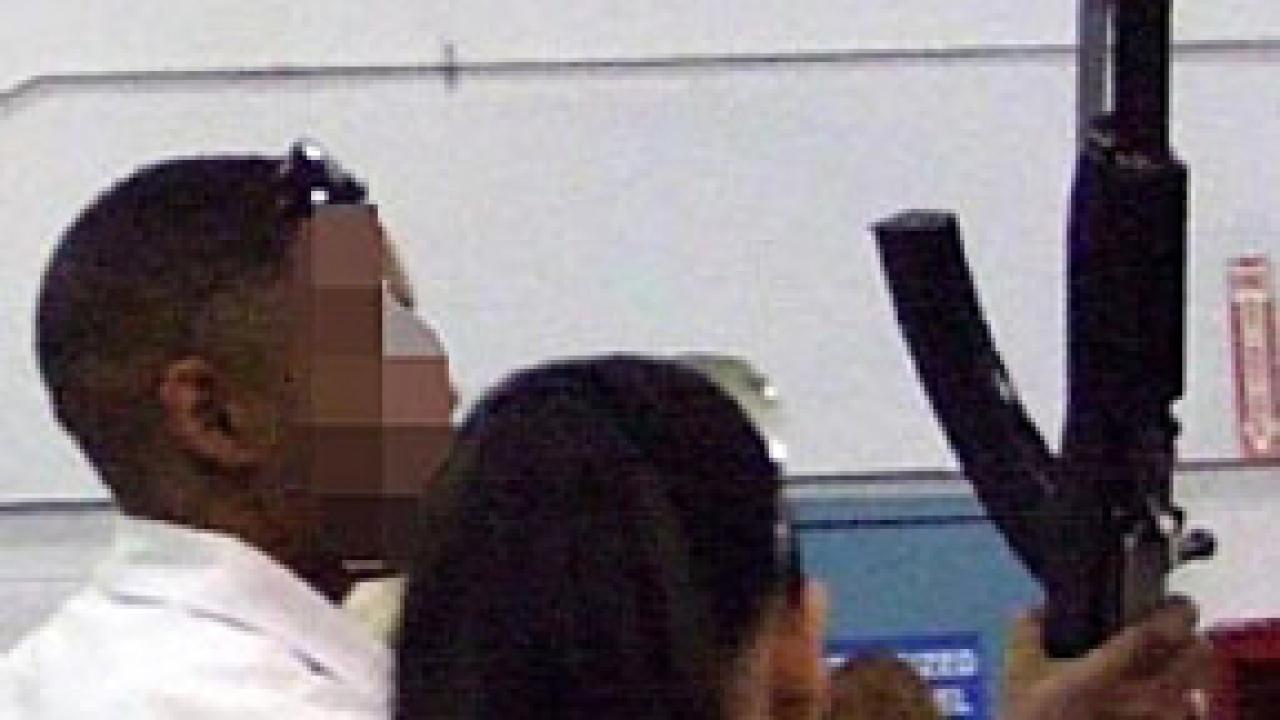Gun shows and the lack of uniform gun-control laws provide easy access to guns that can be used for criminal purposes, according to a new report from the UC Davis Violence Prevention Research Program.
Entitled Inside Gun Shows: What Goes on When Everybody Thinks Nobody’s Watching, the 300-page report provides a “you are there” exposure based on direct observations made at 78 gun shows in 19 states, most of them from 2005 to 2008.
The report features video and hundreds of photographs that show:
• Illegal straw purchases, whereby a surrogate buys from a licensed retailer on behalf of another.
• Anonymous, undocumented private-party gun sales.
• Widespread availability of assault weapons, .50-caliber rifles and the parts needed to make untraceable guns.
• Links between gun shows and the neo-Confederacy movement and neo-Nazism.
“Illegal transactions were often conducted entirely out in the open,” said the report’s author, Garen Wintemute, a professor of emergency medicine in the School of Medicine and a leading researcher on firearm violence. “The sense of impunity among sellers and purchasers in these cases was remarkable.”
While enforcement programs and regulatory policies are in effect in some states, Wintemute said more needs to be done to prevent both unregulated gun sales and illegal gun sales at gun shows and elsewhere.
“Law enforcement needs to have an expanded, proactive program at gun shows to prevent the illegal sale of guns,” he said. “We also need to update existing laws so that all private-party gun sales, not just those at gun shows, are subject to the same safeguards now in place for gun purchases from licensed dealers.”
Exisiting laws require licensed retailers to see buyers' identification and require them to complete the lengthy Firearms Transaction Record, which certifies that purchases are for the buyers themselves and that the buyers are not prohibited from owning guns. Also, licensed retailers must submit this information for buyers' background checks, and the retailers must keep purchase records. Unlicensed vendors at gun shows are not required to follow these federal safeguards, nor are people who attend gun shows.
“Undocumented private party gun sale transactions account for as many as 40 percent of all gun sales,” Wintemute said. “They are quick and convenient, and their anonymity attracts those who put privacy at a premium. These same attributes make private-party gun sales a principal option for a felon or other prohibited person.”
Gun shows are a leading source of guns used in criminal violence in Northern California, the United States, Mexico and Canada. Legislation to regulate gun shows has been introduced in Congress, and stepped-up enforcement operations are under way. Nonetheless, it has been suggested that efforts to prevent gun violence should focus elsewhere.
This research was funded with a grant from the Eli and Edythe L. Broad Foundation, the Joyce Foundation and the California Wellness Foundation.
The UC Davis Violence Prevention Research Program is a multidisciplinary effort researching the causes and prevention of serious violence with an emphasis on firearm violence.
On the Net
Inside Gun Shows: What Goes on When Everybody Thinks Nobody’s Watching
Photos and video from the report
UC Davis Violence Prevention Research Program
Carole Gan is manager of the UC Davis Health System News Service.
Media Resources
Dave Jones, Dateline, 530-752-6556, dljones@ucdavis.edu
